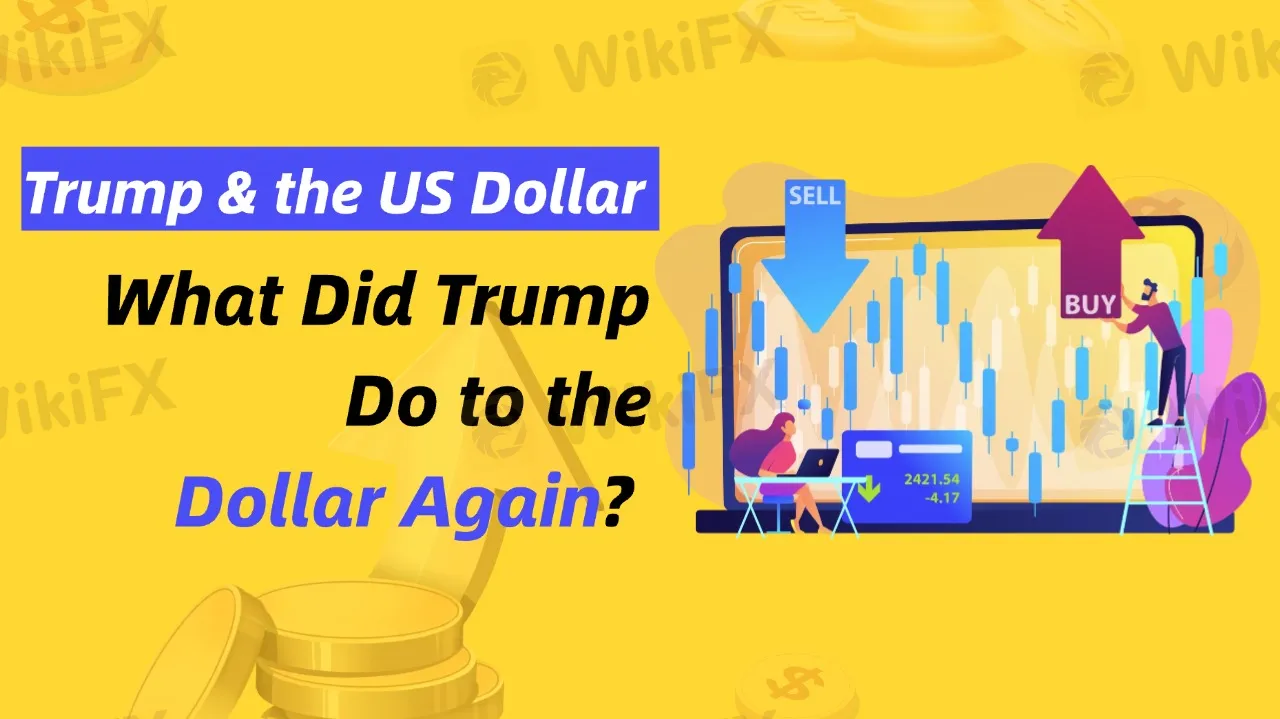What Did Trump Do to the Dollar Again?
Abstract:What decision did Trump make regarding tariffs? Why did it cause Asian stock markets to fall while strengthening the US dollar?

On February 9th, US President Trump announced a 25% tariff on all imported steel and aluminum, which caused Asian stock markets to decline while the US dollar strengthened.
This new tariff policy is expected to escalate tensions in the trade war, push inflation higher, and impact the Federal Reserve's monetary policy. Trump's decision may lead to further strengthening of the dollar.
After the announcement, Asian stock markets opened lower, with the MSCI Asia-Pacific Index down 0.3%, the major index in South Korea falling 0.6%, and the Nikkei Index also seeing a slight decline. However, the US dollar performed strongly, with the dollar index reaching 108.26, hitting a new high.
The EUR/USD exchange rate fell 0.1%, while the USD/JPY rate rose to 151.82 yen. This reflects market expectations that tariffs could push US inflation higher, prompting investors to flock to the dollar as a safe-haven asset.
Trump's tariff policy limits the Fed's ability to cut interest rates. The tariffs may push inflation up, and high inflation would limit the Fed's ability to reduce rates. Based on recent employment reports, market expectations for rate cuts this year have been reduced from 42 basis points to 36 basis points.
Fed Chairman Powell will address this issue during congressional hearings and will release January's consumer price data. Investors are concerned that tariffs will exacerbate inflation, particularly with some companies expecting price hikes.
In response to the uncertainty brought by Trump's tariff hikes and fluctuations in the US dollar, investors should proceed with caution. When the dollar performs strongly, it may be wise to moderately increase allocations to dollar-related assets.
Given the rise in inflation expectations, investors should pay attention to changes in the bond market and adjust their portfolios accordingly. With the global economy facing uncertainty, diversifying investments is crucial to reducing potential risks.
Read more

Broker Comparsion: FXTM vs AvaTrade
FXTM and AvaTrade are two well-established online brokers offering forex and CFD trading across global markets. Both enjoy strong reputations and high ratings on WikiFX—FXTM holds an AAA overall rating, while AvaTrade scores 9.49/10, indicating they’re regarded as reliable choices by the community. However, since brokers have great reputation in the industry, how do we know which one is more suitable for individuals to invest in? Today's article is about the comparison between FXTM and AvaTrade.

Pi Network: Scam Allegations Spark Heated Debate
A whistleblower report has surfaced, casting doubt on the legitimacy of Pi Network, alleging psychological manipulation, opaque operations, and potential financial exploitation. What is your take on this?

Webull Listed on Nasdaq Following SPAC Merger with SK Growth
Webull and SK Growth complete their business combination, with Webull now trading under the ticker “BULL.” App hits 50 million downloads worldwide.

UN Warns Asian Scam Operations are Spreading Worldwide
UN report reveals Asian scam operations expanding globally, targeting Africa, Latin America with cyberfraud, generating billions amid crackdowns.
WikiFX Broker
Latest News
Love, Investment & Lies: Online Date Turned into a RM103,000 Scam
Broker Took 10% of User's Profits – New Way to Swindle You? Beware!
Pi Network: Scam Allegations Spark Heated Debate
Broker Comparsion: FXTM vs AvaTrade
Account Deleted, Funds Gone: A New Broker Tactic to Beware Of?
Broker’s Promise Turns to Loss – Funds Disappear, No Compensation!
StoneX Subsidiary, Gain Global Markets Bermuda, Penalized for Trading Misconduct
El Salvador and U.S. Launch Cross-Border Crypto Regulatory Sandbox
The Instagram Promise That Stole RM33,000
Coinbase Launches Bitcoin Yield Fund for Institutional Investors
Rate Calc
